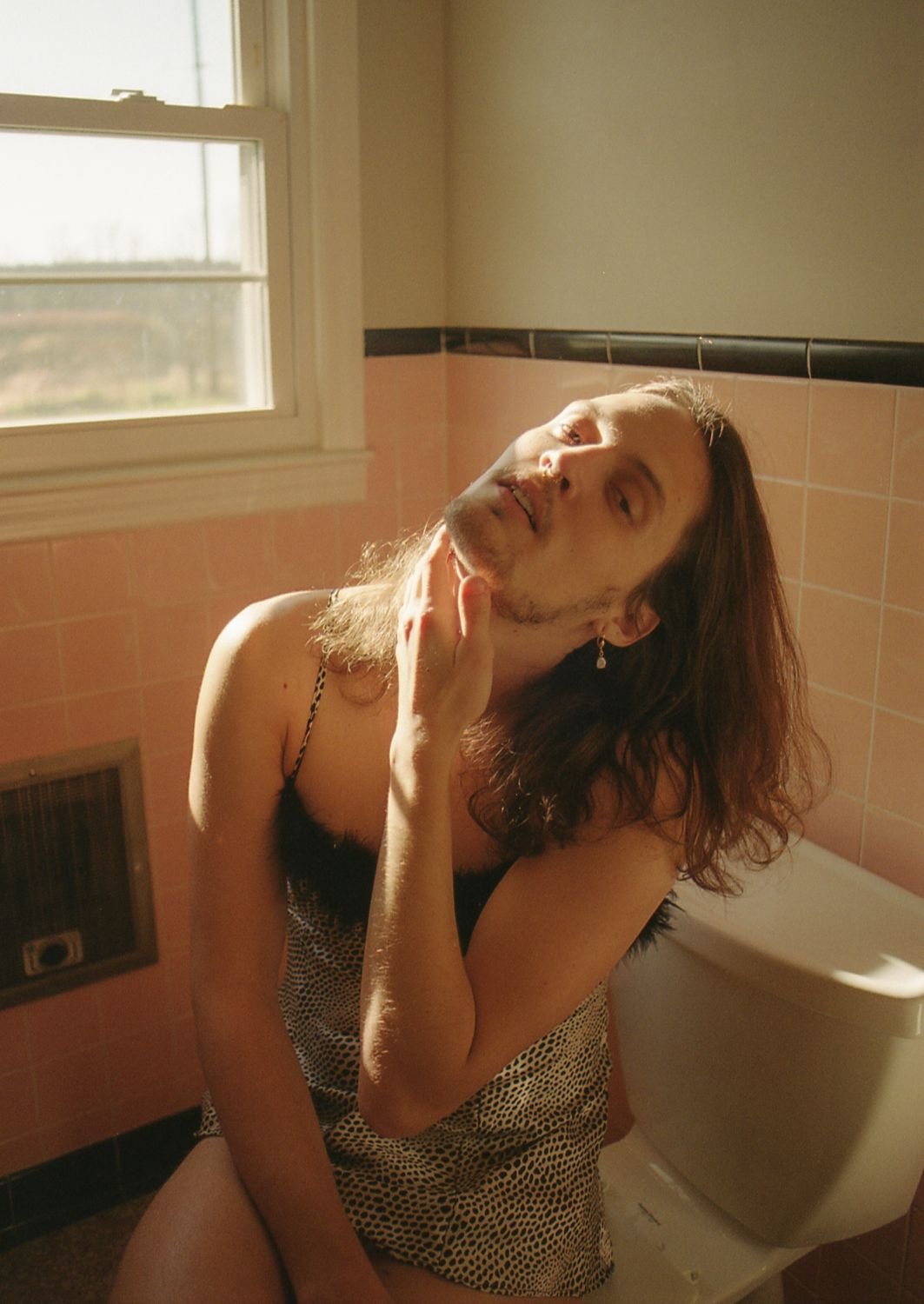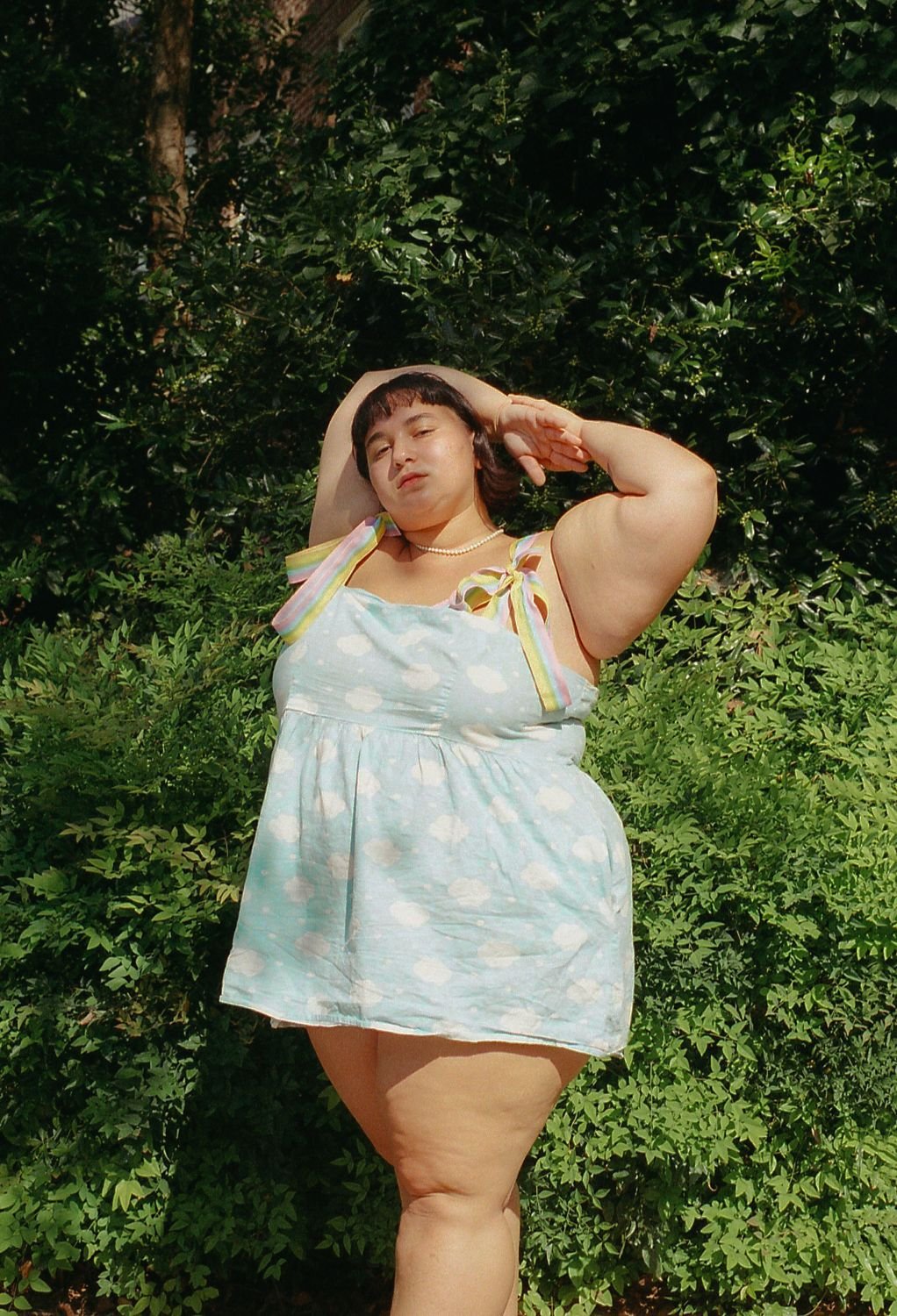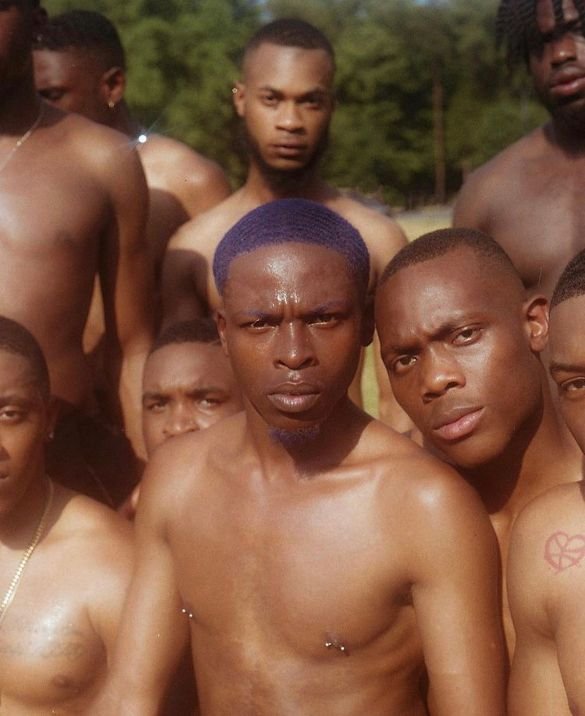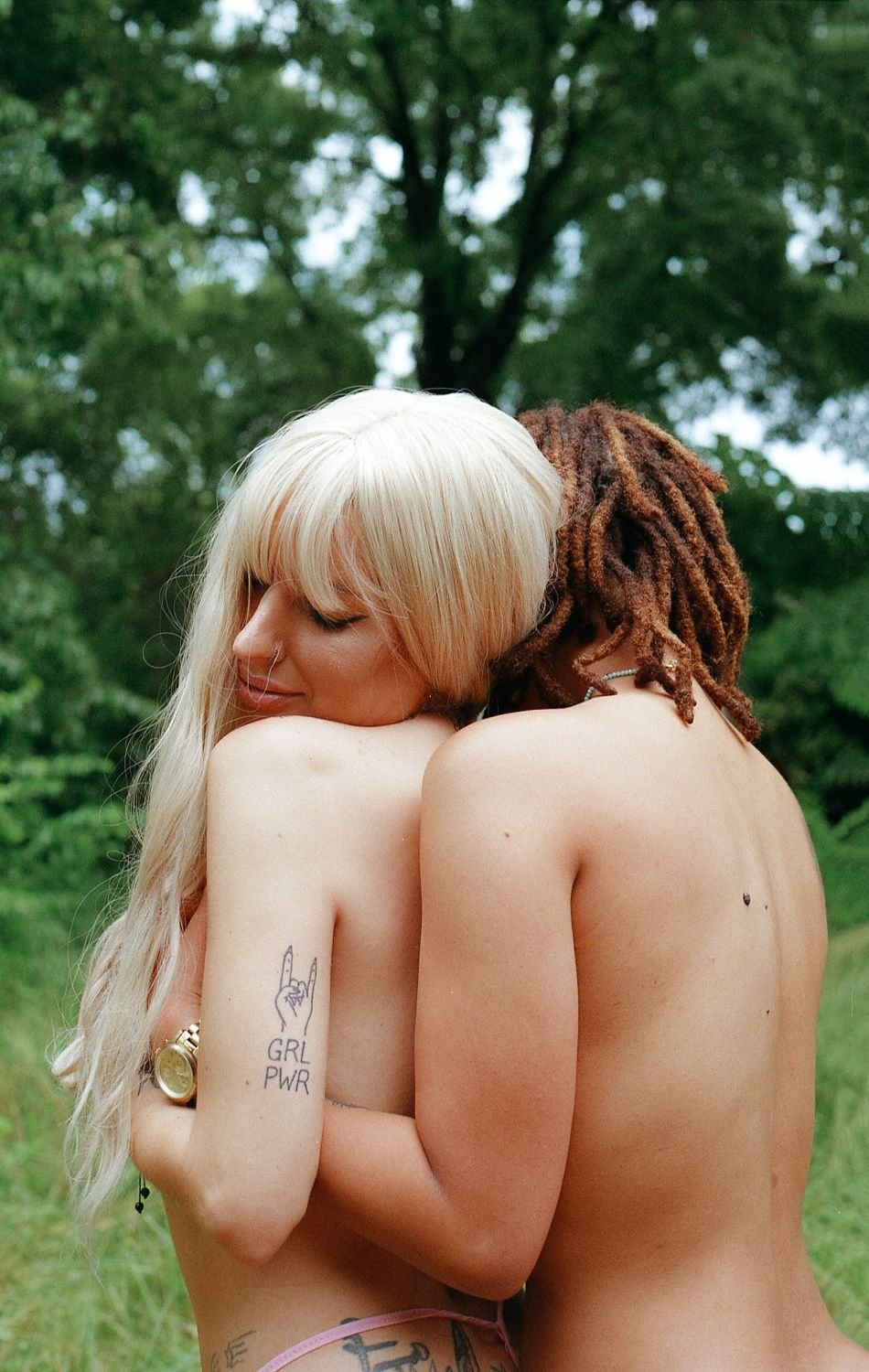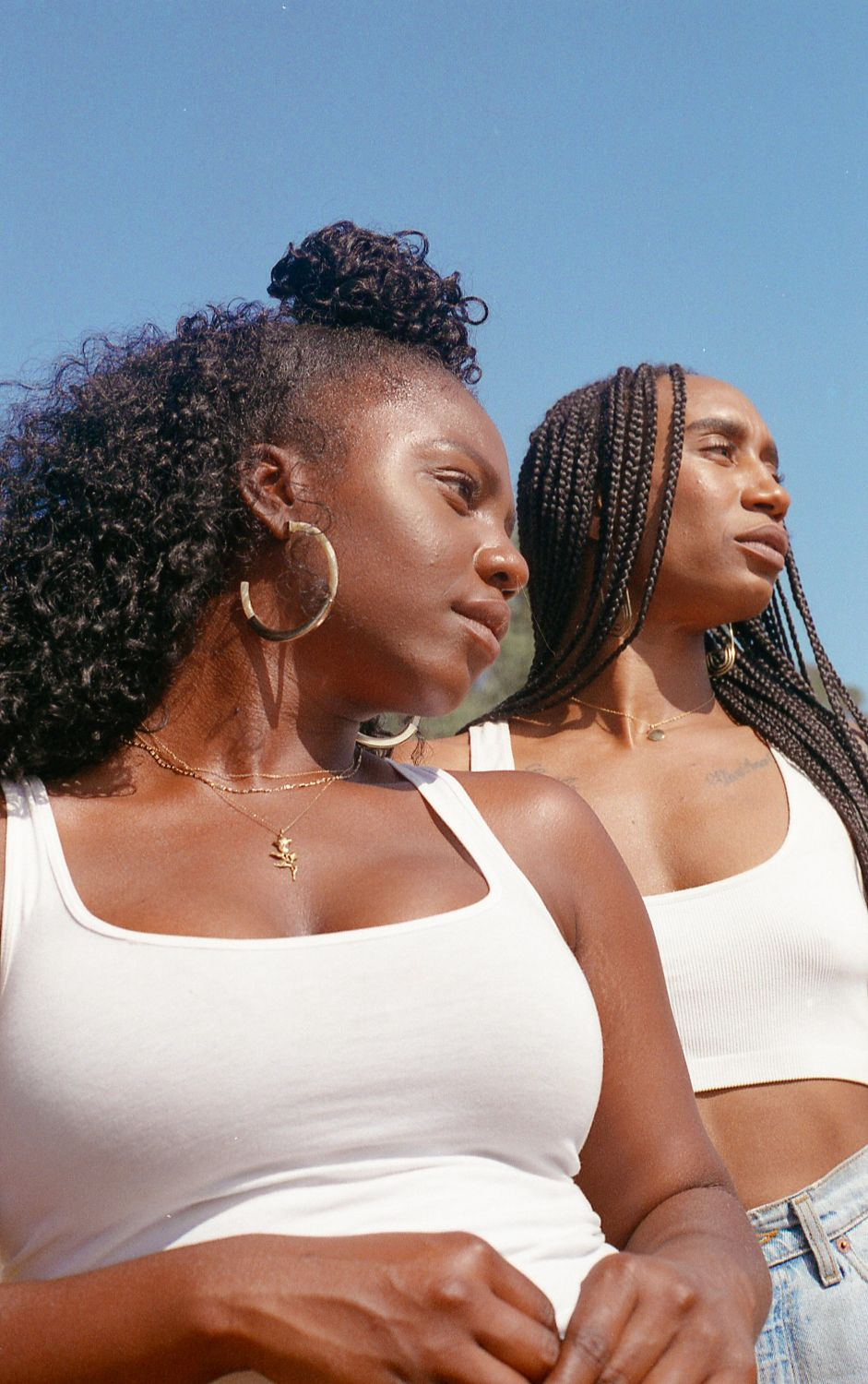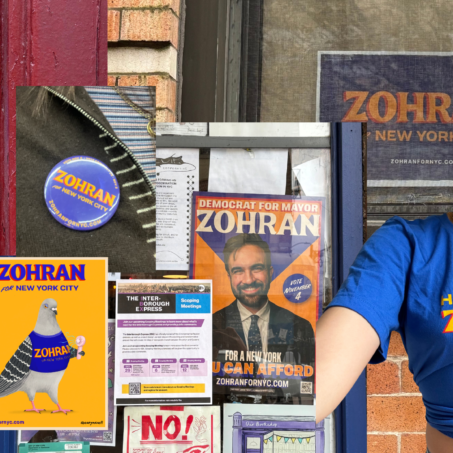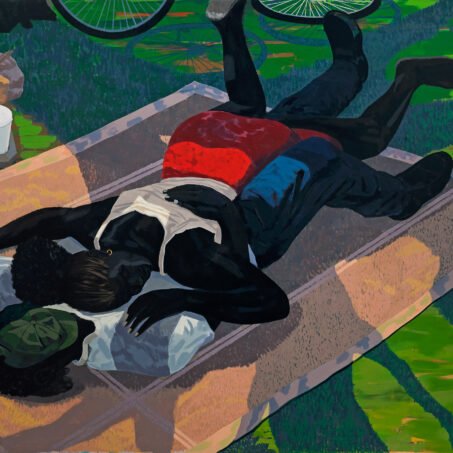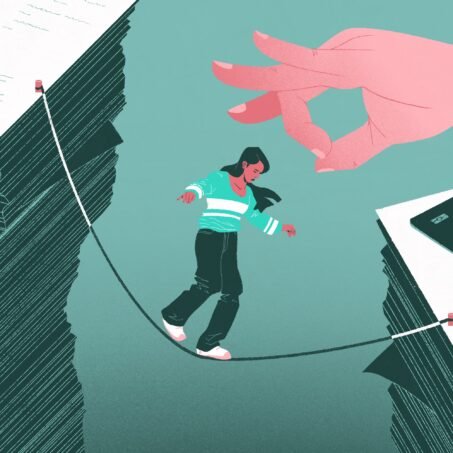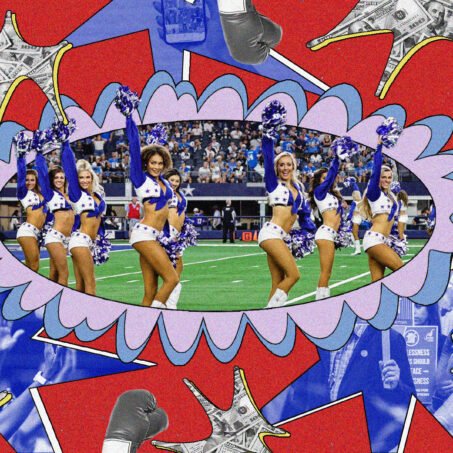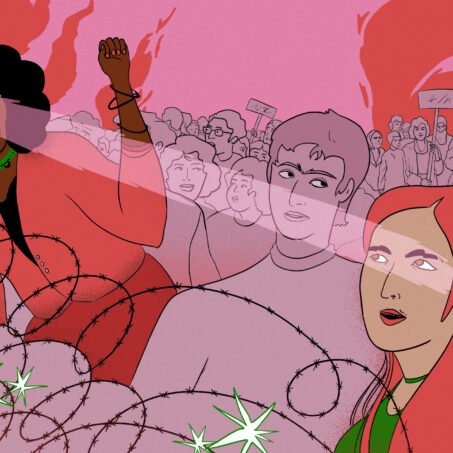Liam Woods is a Trans and Non Binary image maker whose work, they say, is “characterised by the vulnerable, candidly intimate storytelling of Queer people, People of Colour and other marginalised communities.“
When you first see Liam’s work you’re struck by the familiarity and sensuality of their unapologetic portraits, which are tinged with analog-induced nostalgia.
Alongside the palpable sense of celebration in the portraits on Liam’s feed, there’s a real notion of community building and shared space. For Liam, this seems to be a core motivator, as they tell us that “the main mission in [their] work is to continue to build upon community and provide resources and access for the betterment of BIPOC and Queer creatives as a whole.”
We were really excited to speak to Liam further about their beliefs, problems within the industry and the importance of the Black Trans family around them in Portland.

How has your lived experience shaped your practice?
Photography for me has been a form of creative freedom and escapism from a world that has often been cruel to me – and still continues to do so as a Black openly Trans and Non Binary person who also has Borderline Personality Disorder from the years of trauma.
My photography gives me the power to shift the narrative and create worlds and relationships that I hope for and that I hope will inspire others.
Worlds of inclusivity, liberation, kindness, vulnerability without brutal judgement, honesty and love of all forms.
My lived experience inspires me to focus on what matters to me. To create art that is uplifting and true of the heart of the people around me. I want to inspire their best selves and in doing so that inspires me more in return with my practice.
What are some of your biggest influences and motivations in your work?
A lot of my biggest influences come from a mixture of television and film from my childhood and from today’s period of entertainment as well. From the nostalgia of 90’s/early 2000 pop culture films to the colourful style and radiant diversity of shows like Sex Education on Netflix to the intimate vulnerable storytelling of HBO’s Insecure.
I am passionate about storytelling in my work, so I look more towards the influences of television and film to guide me. And sometimes on occasion, music inspires me as well and motivates my vision.
What issues are you passionate about working on?
I want to use the resources and connections I have made along the way in my career to help other Black photographers in the community. There is still such a horrific lack in the industry of Black Trans and Queer artists as well as Black femme artists both in front and behind the camera.
Though I am not an agency and do things on my own as a freelance photographer, I have been able to create over 50 jobs in the past two years for Black creatives with some leading publications and brands such as Apple, Adidas, Warby Parker, The New York Times and Spotify.
This year, I have also partnered with NPO Radical Womxn to organise a Black Photographers Meetup in Los Angeles where sponsors were able to contribute elaborate production sets and other resources for the advancement of Black creativity.
We also provide an opportunity for celebrity guests to network with creatives as well as boost their portfolios along with agency members and other special guests. The goal is to provide more opportunities to Black creatives and extend our network further in the US.
What excites you about the creative community where you are based?
The Black Trans community I have found in Portland has really helped me thrive as a person and an artist.
I only moved here last summer, and we have become very closely connected in such a short period of time. The way the community has opened its heart in that sense has really inspired me to keep pushing myself and challenging myself.
No one is afraid to help the other, and they really stick by you through the hard times and the good. I’m thankful to find people who believe in me as much as I believe in them. We all want to see each other win.

Can you tell us a bit more about your practice – what informs the subjects/projects you choose?
I like to take on projects that feel personable and relatable to multiple communities. I want people to be able to see themselves in my work and for us to safely share our experiences – whatever those experiences may be at the time. I enjoy shooting analog film because I love the texture and nostalgic warmth that it holds around the subjects. It gives it this timeless feeling.
You recently posted a carousel of photos on your IG and put an ‘algorithm-busting’ image of white people as the first one. Can you talk a bit more about your experiences of shadow-banning and digital racism?
It’s hard to explain something you cannot fully fathom or comprehend. But you have these very specific algorithms working against us. Algorithms that can read skin tone, or censor ‘“trigger” words that aren’t even trigger words but a part of who you are.
But somehow, who we are is seen as wrong, inappropriate or ‘“violating community guidelines”. How do you support yourself in this industry when you have white people and their power in technology working against you? When you have algorithms specifically reading into skin pigmentation and the lighter you are the more your work is boosted on social media and the darker you are, the less views you receive on your profile.

Join our mailing list
Sign up for shado's picks of the week! Dropping in your inbox every Friday, we share news from inside shado + out, plus job listings, event recommendations and actions ✊
Sign up for shado's picks of the week! Dropping in your inbox every Friday, we share news from inside shado + out, plus job listings, event recommendations and actions ✊
Some of the people that really dove into explaining this very well are the Black Social Media Influencers ‘“The Collab Crib’” on the Hulu series “The New York Times Presents..” Every day is a struggle that deeply affects my livelihood. The further I’m shadow banned, the less people view my work, the less money I make.
What does real support for BIPOC creatives look like and what more can be done within and outside the industry to support this?
There’s a lot of things that need to be done to show real support for BIPOC creatives, but let’s start off with these main issues.
Gatekeeping needs to end and people with power and privilege in the industry need to make more resources and opportunities accessible for BIPOC creatives. And not just during specific times like Black History Month and Pride Month. They need to make everyday access.
The industry needs to start prioritising BIPOC Women, Trans, Non Binary, 2 Spirit and Queer photographers and not just the same ten Black cis male photographers and calling it “diversity.” That is not the same. People need to branch out and you can still hold space for others too. Because right now, a majority of editors and directors in power are still only giving a platform to one specific voice that cannot speak for all of us. Our culture is too multifaceted to be held in such a linear view. There is so much rich diversity across the map of our work and that needs to be represented.
We also need more diverse employment for positions of power in this industry. Almost every Art Director, Editor, Creative Director, Producer in positions of power in the industry are all white women or white men with the same interests and from the exact same background. And with their linear point of view of Blackness in this industry, it makes it a million times harder to get a foot in the door.
Black Women, Black Trans People and Black Queer people have laid the foundation for the creative industry. But the jobs in the industry are still somehow inaccessible with such a small percentage being represented within the photography industry.
Blackness is still categorised in these tiny little boxes. White people (white editors, art directors, executives and other creative leads in power) need to break free of that and listen to, hire and continuously support BIPOC creatives who aren’t just a part of their elite token list and branch out.
And the Black creators who are a part of this elite list need to let down their defences and use the power they have in these rooms to also help contribute to bringing on more BIPOC creators. This shouldn’t be a competition. We need to stand together as a community instead of holding onto this ‘Crabs in a Bucket’ mentality pulling each other down to get ahead. We have to lay the foundations for the next generations.
We need to work together to build a better, brighter future. We need the mic passed to Black people and let us take the reins. To ALL Black people.
